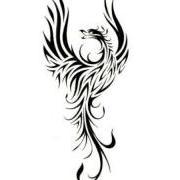Early Years and Discoveries
It wasn’t until I was seven years old that I had it pointed out to me that I was different. Prior to that, I had never considered myself to be anything other than a happy child who played with all the boys who were my friends, and I enjoyed life. I hadn’t ever consciously thought there was anything odd about the fact that all my friends were boys, just as I hadn’t ever consciously thought that I didn’t behave like a typical girl. Looking back, I know now that it could have seemed odd to others but it never occurred to me that anything was amiss. I didn’t play with dolls and tea sets, even though my parents had given me plenty. I spent my days playing in the mud with the boys, climbing trees and making dens and I used their toys; the cars and fire engines and toy swords and guns that boys were given to play with. And I was perfectly happy with that until I was seven, when the mother of one of my friends pulled me away from the game we were all playing and she took me home, where she handed me over to my own mother and said she thought there was something wrong with it.
I overheard the whole conversation even though I don’t believe they thought I could hear it. Or maybe they didn’t consider that I would understand what they were saying. But I did. My friend’s mother told my mother that it was wrong that I played with the boys. My mother defended me at the time - I remember so clearly - by saying I was “just a tomboy” and that there was nothing wrong with that. She said I was too young to know any better and I would grow out of it. And she told my friend’s mother to mind her own business. Their voices became raised and I recall feeling guilty because I had caused the argument.
I wasn’t allowed to play at that boy’s house again.
When it dawned on me that someone had thought my behaviour was wrong, and that I had been punished for it by losing a friend - my playmate - I began to change. I didn’t go in the opposite direction; I didn’t suddenly start playing with the girls’ toys, or take up any girly hobbies. Instead, I just stopped playing with my friends. I became introverted, although I didn’t know it at the time. I didn’t realise that until years later. Instead of playing, I used to read. I kept myself to myself. I kept my thoughts to myself. Realising that I missed the boys made me realise I missed what we’d had; that camaraderie that we had shared, the comfort of being with people like me - because I had thought they were like me and I was like them. That was when I first began to really consider that boys and girls were different and that we had our roles to play and that I wasn’t fitting at all well with the “girl” role I had been given. The role that was expected of me, I realised. I remember thinking how unfair it was.
At ten years old, I hit puberty. I can’t possibly put down in writing how disgusted it made me feel. There was so much wrong with it. I found the whole thing gruesome and it made me feel dirty and I didn’t want it. As my body began to change I began to hate everything about it and I began to hate myself. That hatred of my own body has never gone away. I don’t like to have my photograph taken. I don’t like to be filmed. I don’t like to look at myself in the mirror. And, as my partners over the years can attest, I have never liked other people seeing my body or touching my body.
At school, my friends were still male. The people I talked to, connected with, were male. That was the case until the age of eleven when I changed schools. My secondary school was an all-female affair. And I didn’t connect with anyone for a year or more. My teachers thought I was shy and quiet. School reports regularly had something written on them, by one teacher or another, suggesting that I needed to make friends and “come out of my shell”. I preferred not to be noticed. I kept my head down.
I was never bullied at school. But I did eventually make friends with a girl who was being bullied. For some reason, I had felt it was my responsibility to step in, one day, and stop an act of bullying that I witnessed. I had felt the need to protect her from her tormentors. It was uncharacteristic behaviour for me, because it got me noticed. But it also got me interacting with females for the first time.
Eventually there were three of us who always hung around together. Paula had most definitely gone through puberty in a major way. She had the body of a woman at the age of twelve, and she knew it and flaunted it. Voluptuous is the word I’d use to describe her. Huge boobs that most of the girls were envious of. Especially Debra, the third member of our little group. Debra was lithe and flat chested. I was somewhere in between the two, although I envied Debra’s body, not Paula’s. But while I wanted Debra’s body for myself, insofar as I wanted my own carbon copy of it, I appreciated Paula’s. I was attracted to Paula’s. Paula was my first crush.
While, by this time I obviously wasn’t unaware of the fact that I was “female”, in our little group of three I was the closest thing there was to the alpha male. Both Paula and Debra deferred to me in the decision-making department - always - and I was in charge. Whether they knew it or not, they both managed to reinforce my feelings of being male and my desire to be male in body as well as spirit and mind. And that, if I’m honest, is the main reason I hung around with them. It wasn’t for their girly chats or their feminine pursuits.
And that is an awful thing to admit, because it means I was using them. And it wouldn’t be the last time I used females to make me feel better about myself. That realisation, when it occurred to me, filled me with guilt for many years, because even though on some level I knew I was doing it, I never stopped myself from doing it. I feigned interest in their feminine activities, even though those activities bored me rigid, because it allowed me to remain a part of the group.
I fancied Paula. There was no two ways about it. That was another reason I hung around with the two girls. And one evening, I plucked up the courage to tell her. Debra was missing that night. She was sick, if I recall correctly, and so it was just Paula and I. And while I was scared of what I was about to do - coming out for the first time - the guilt was eating at me and I had a compulsion to explain myself to someone I thought I trusted.
So I told her. I told her I was attracted to her, and when her face betrayed her thoughts - confusion and then revulsion - I jumped in to explain further. I said it was alright because I wasn’t a girl. And I went on to explain what I meant by that. Paula walked away. And I didn’t go after her.
Looking back, I can see now how much that rejection affected me. The knowledge that she found me revolting, after I’d told her what I was and how I felt, coupled with the fact that, back at school the next day, she immediately told anyone she could find to listen, made me take the decision not to share like that ever again. I also know now that it reinforced the feeling I’d had since the age of seven, that there was something wrong with me; that I was defective. I felt bad about losing friends again - because I did lose them - and I felt bad that the cause of it was me and the way I was. The way I am. And the fact that I’d opened my mouth. I should never have opened my mouth.
I went back to being a loner. I withdrew to my bedroom every evening after school and I decided I didn’t need friends. It was too much hard work trying to cultivate friendships, especially when I was defective. Everyone could obviously see those defects so the best thing to do was to hide them. Initially I hid them by hiding myself away and not interacting with people, above the bare minimum required of me. Later, I would hide them by denying them.
By the age of fourteen, my mother was sick of me hiding away in my room and not acting like a normal teenager. Whatever a normal teenager is supposed to act like, I obviously wasn’t doing it, according to her. She dragged me to see a doctor. The pair of them discussed me as if I wasn’t there and I tried to pretend I was ignoring the conversation. I wasn’t, though. I heard it and I was getting annoyed by what they were saying because they didn’t have a clue. Eventually the doctor turned to me and asked me what was wrong. Frustrated by all the ridiculous conclusions they had drawn - one of which was that I was struggling at school (not true; my grades were good), another was that I was having “boyfriend trouble” (not true; I hadn’t even looked at a boy in that way at that age) - I told them what was wrong with me.
My second disastrous attempt at coming out. My mother said I was too young to know what I was saying. She said I was talking rubbish. She got very angry and upset. The doctor backed up my mother. He said that I was just confused and that I could put that confusion down to puberty. My body was changing; the hormones were very active. It was normal to be anxious and confused but things would settle down in a year or two. In the meantime, take this prescription. That will sort you out.
I later found out the medication was to treat anxiety and depression.
Two attempts at explaining, to someone I trusted, what was going on with me and how I felt. Two rejections. Two reinforcements that I was most definitely broken. I wouldn't try it again for many years.



2 Comments
Recommended Comments